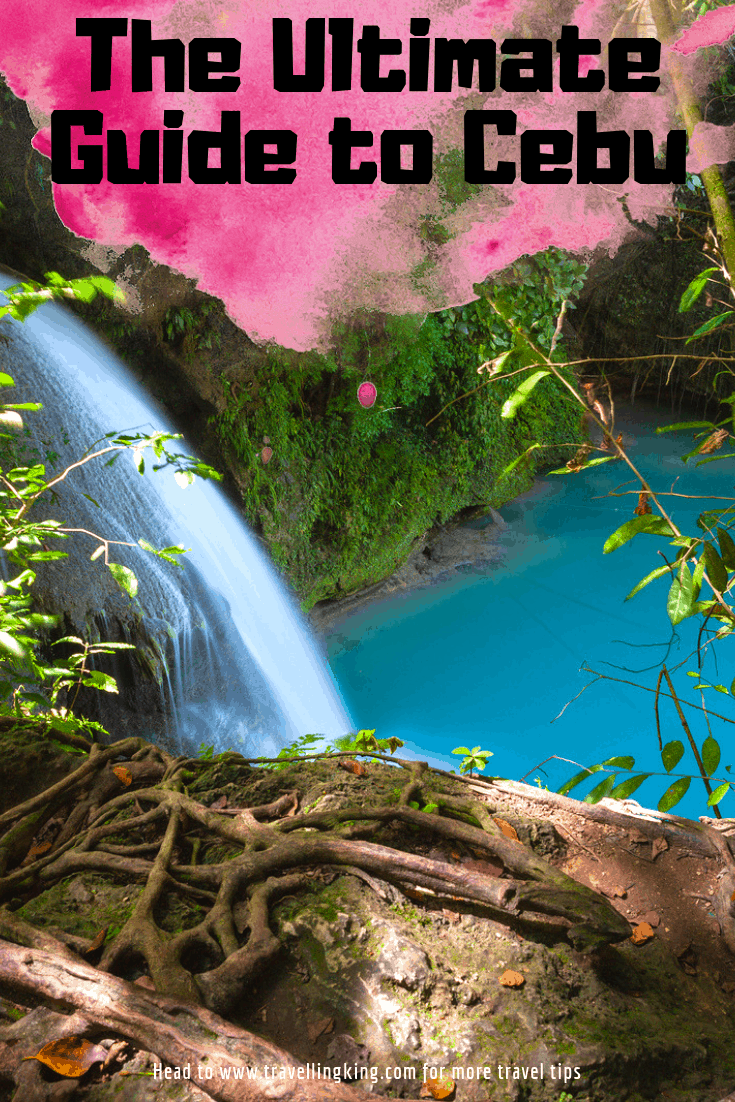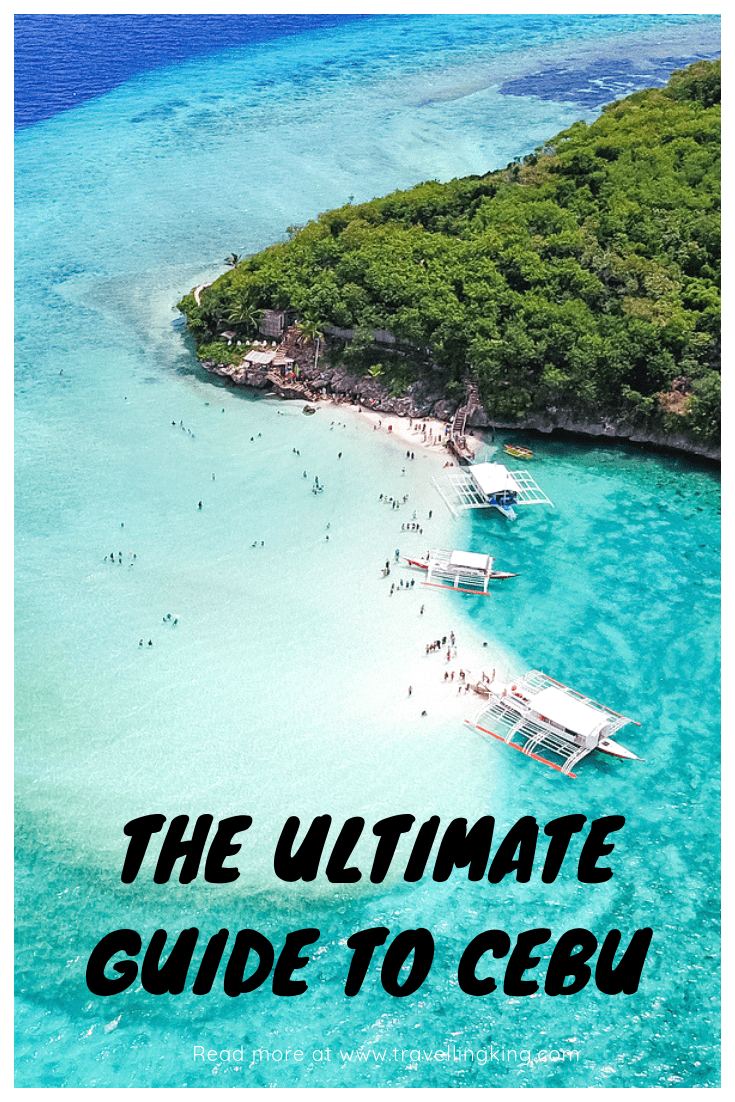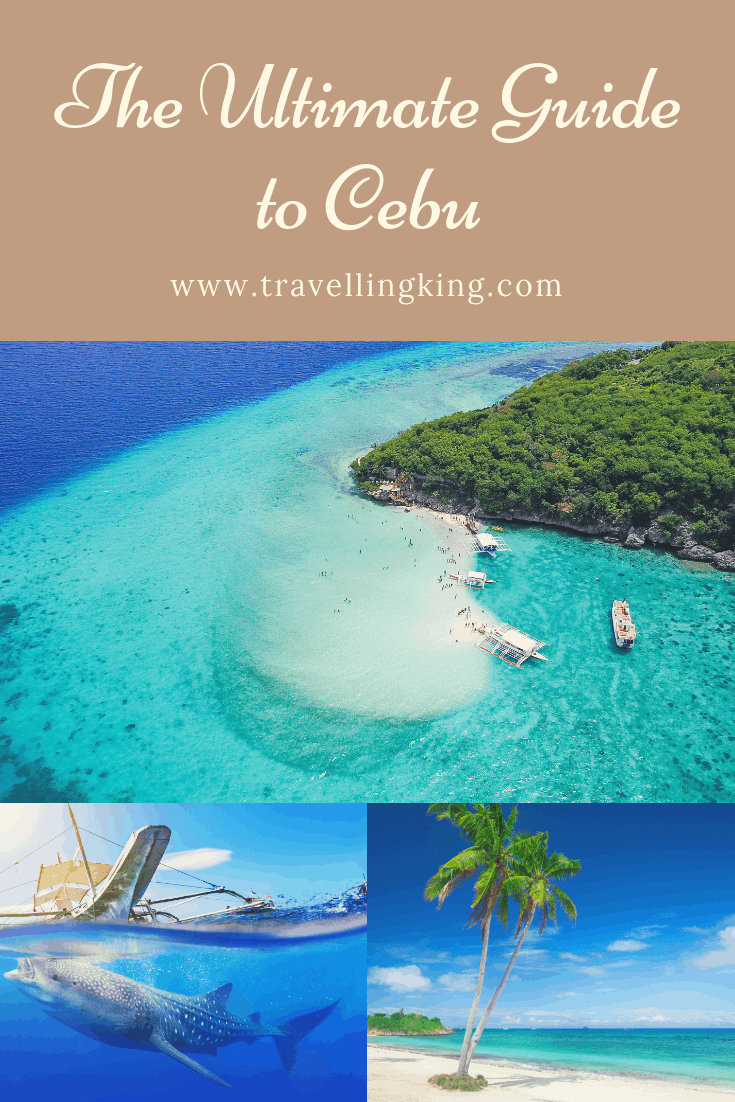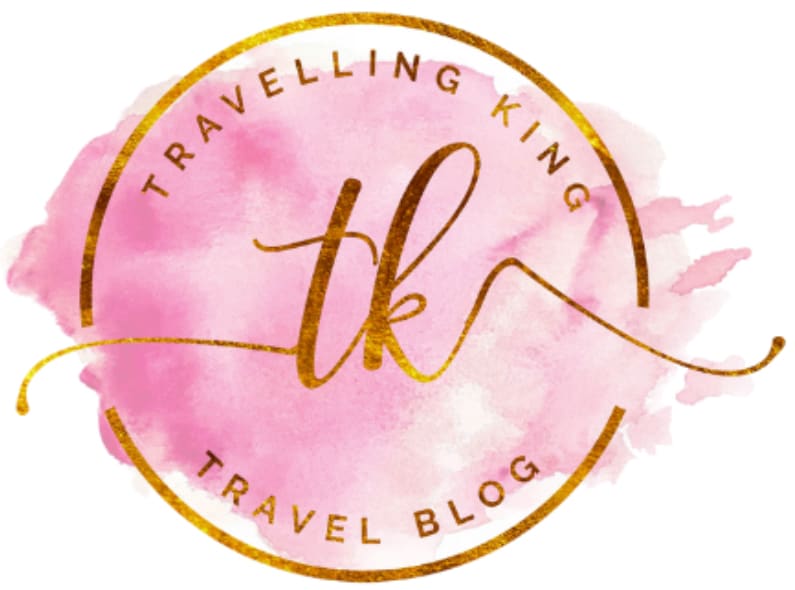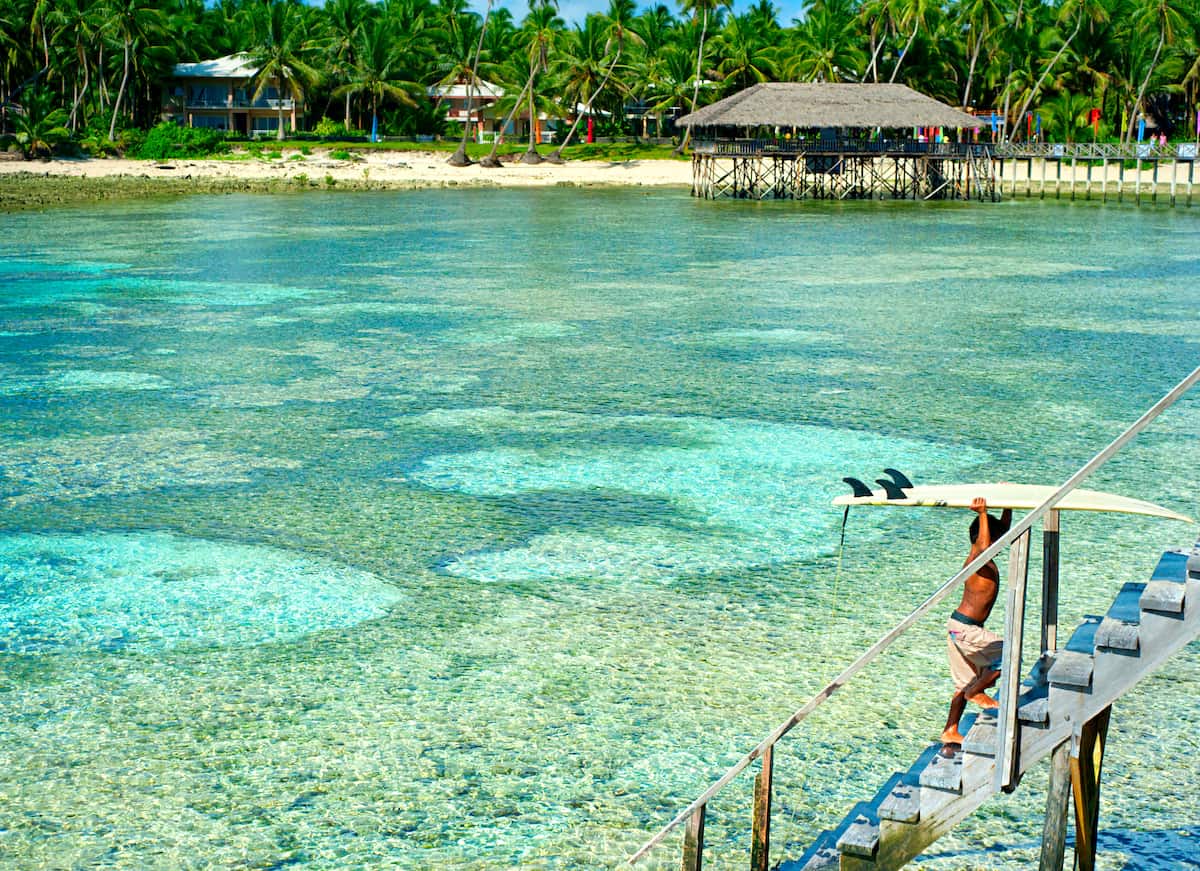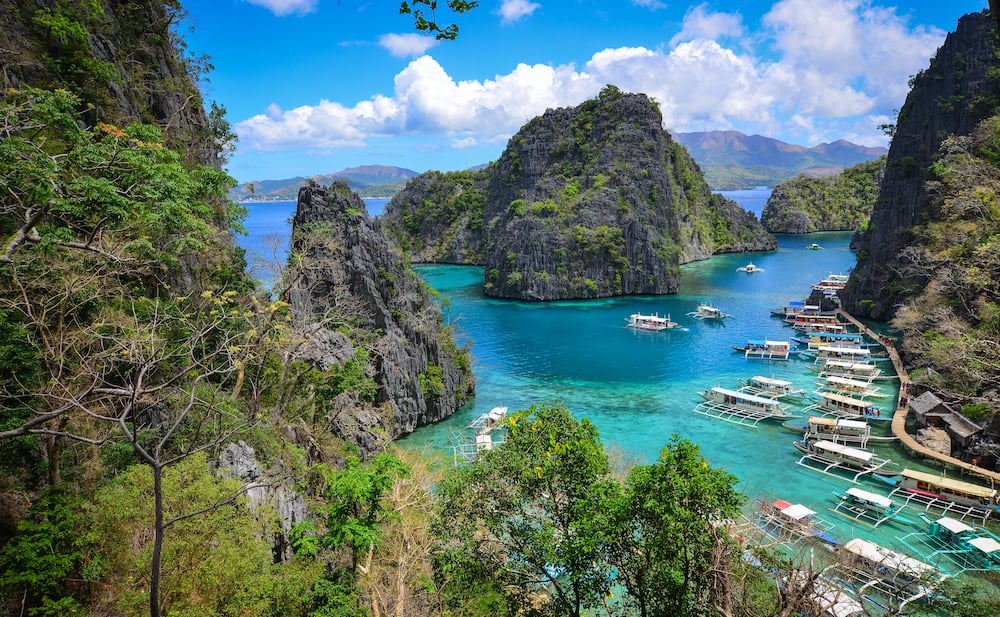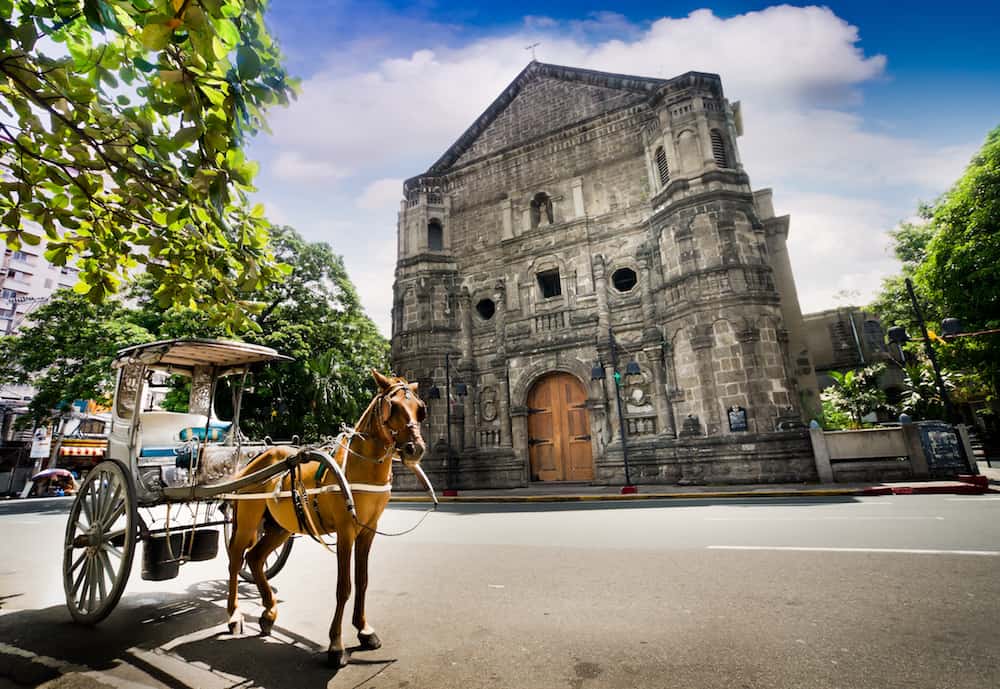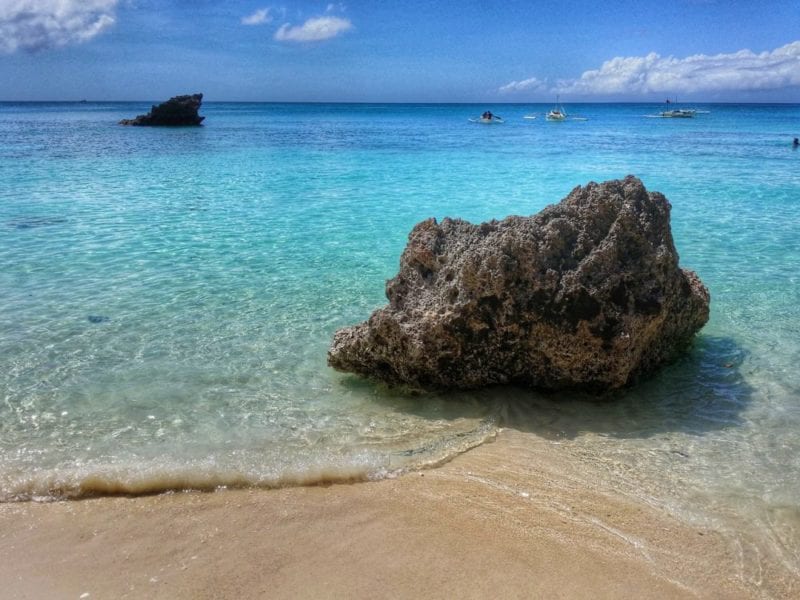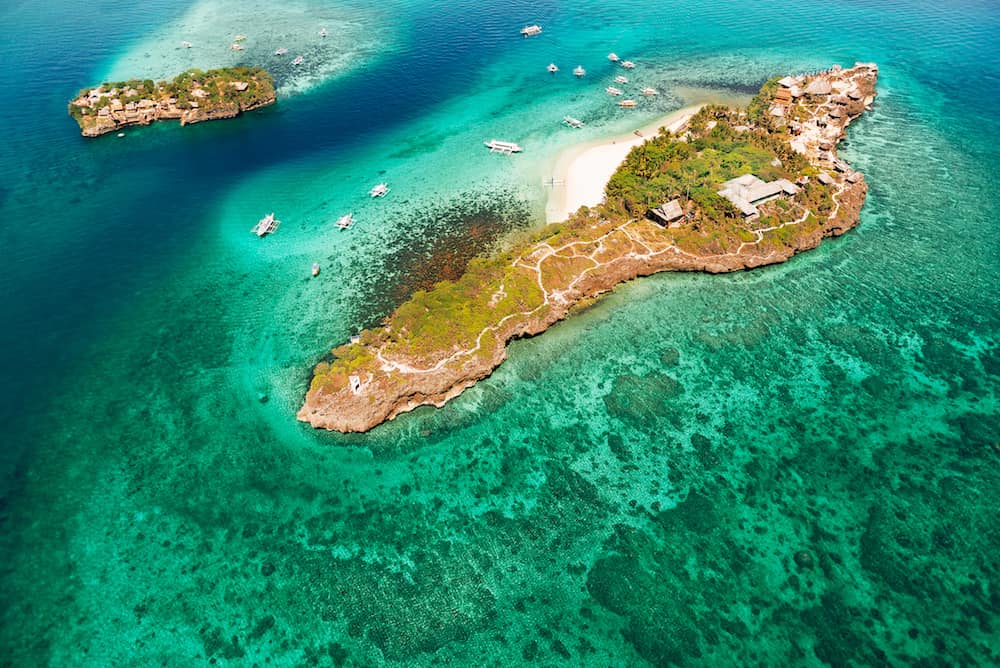The Ultimate Guide to Cebu
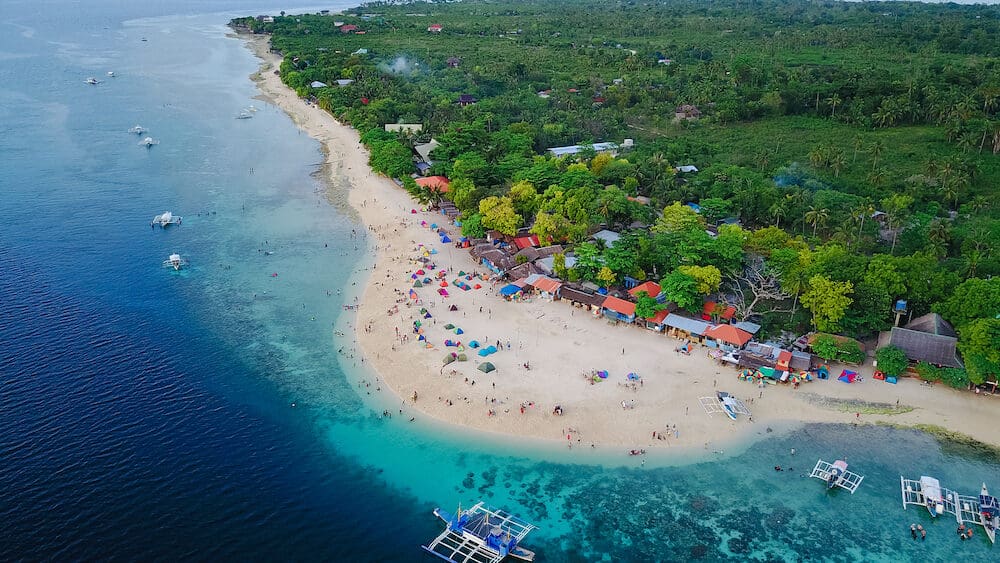
Cebu, Philippines is a province made up of 168 beautiful islands. This area of the Philippines has a thriving tourism industry, thanks to its eclectic mix of historical charm, delicious food, world-class shopping, and white sand beaches. With so much natural beauty to discover, more and more travellers continue to be drawn to Cebu.
The majority of tourist spots in Cebu are found on the main island, Cebu Island. This Cebu travel guide will show you what to do in Cebu, focusing on the main Cebu tourist attractions, and give you an insight into what you can expect from this breathtaking destination.
Plan your trip
Save on fees abroad with the Wise Card—use it at ATMs, restaurants, and for flights or hotels in over 150 countries. Manage 40+ currencies in real-time with the Wise app.
Need Help Planning?
- Cheap Flights: Find the best deals.
- Accommodation: From hostels to luxury stays.
- Car Rental: Affordable options worldwide.
- Sightseeing Tours: Explore without breaking the bank.
- Travel Adapter: One adapter for all your needs.
- Travel Insurance: Don’t risk it—stay covered.
This post includes affiliate links. Read my full disclosure and content policy.
How to get to Cebu
The Mactan International Airport (CEB) is the second busiest airport in the Philippines and is less than 15 kilometres away from Cebu City on Mactan Island Cebu.
There are many direct flights from nearby countries, including Singapore, Malaysia, Japan and South Korea. A connecting flight from Manila, the capital of the Philippines, takes only an hour.
The journey from the airport to Cebu City takes anywhere between 40 minutes to an hour and a half, depending on your mode of transport. Many hotels offer free vans to and from the airport, so be sure to inquire.
Otherwise, a MyBus service runs every half hour from seven in the morning until nine o’clock at night. This bus costs 25 pesos per person and is the longest option. By comparison, yellow taxis can cost around 400 pesos.
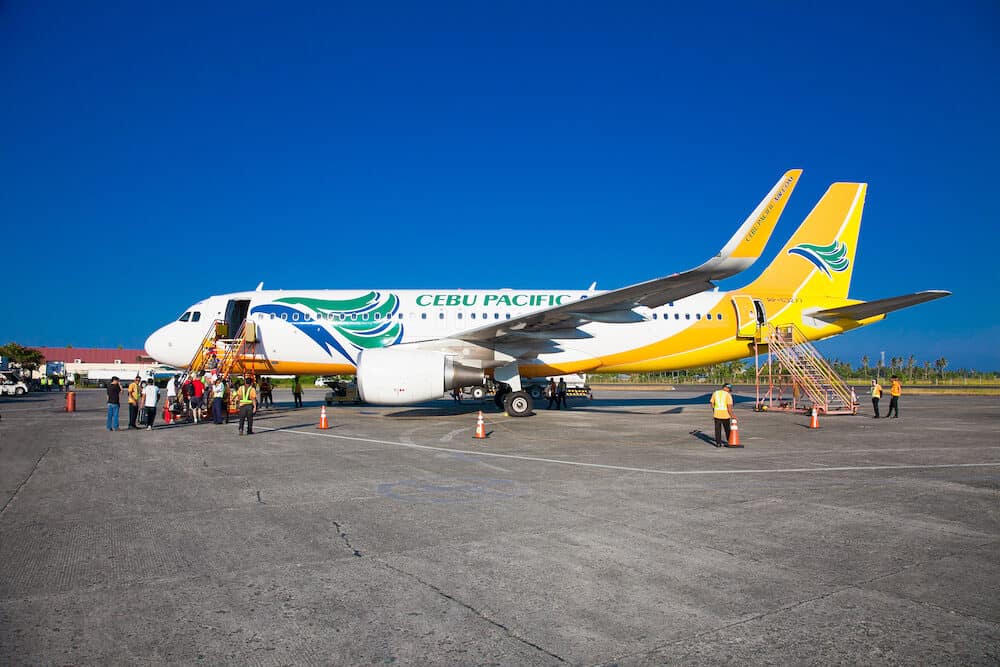
What to expect in Cebu
There are well over a hundred different languages and dialects throughout the Philippines. However, as of 1987, the official languages are Filipino and English. The government, for example, primarily operates in English.
Filipino is based heavily on Tagalog and is considered a standardized version of the indigenous language. However, the Cebuano language is preferred over Filipino in this part of the country, as it is the native language of Cebu and many surrounding areas.
Just about everyone in Cebu speaks English, so you won’t have any trouble communicating and getting to know the locals while you’re there.
In Cebu and the rest of the Philippines, you’ll use the Philippine peso, not to be confused with the Mexican or Argentine pesos. One euro currently equals about 60 Philippine pesos. Each banknote has its own unique and vibrant colour, so you’ll quickly be able to distinguish between them all and pay with ease.
You’ll receive conflicting advice about the tipping culture in the Philippines. Due to the increasing Western influence, tipping is becoming more and more common among both tourists and locals.
While you should never feel pressured to tip, you may give whatever amount you’re comfortable with to waiters, tour guides, spa staff, and taxi drivers.
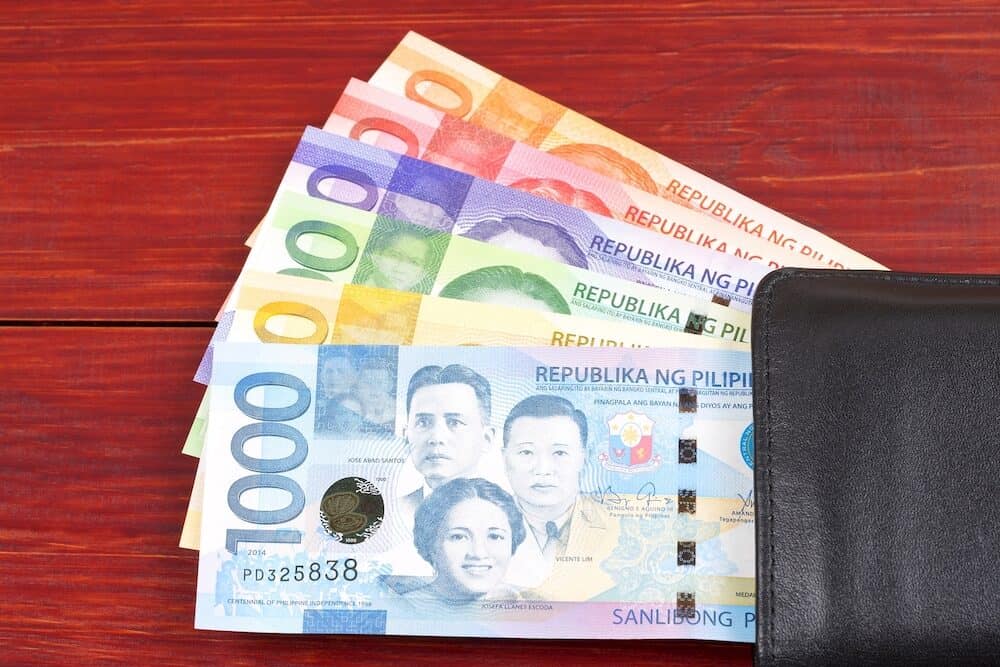
How to get around Cebu
The Philippines has its own unique form of transport known as the jeepney. This jeep-bus combo is the most ubiquitous public transportation option in the country and has become known for the colourful, artistic and kitschy decorations.
Tricycles are also a fun way to get around if you only need to travel a short distance. They’re similar to tuk-tuks in Thailand and can be found throughout Cebu. You’ll find more common transportation methods available too, including metered taxis and Grab, Southeast Asia’s Uber.
Of course, ferries and boats are necessary to travel to other islands within the Cebu Province. If you don’t have a tour planned, you can head to any of Cebu City’s five ferry terminals to explore the surrounding islands yourself.
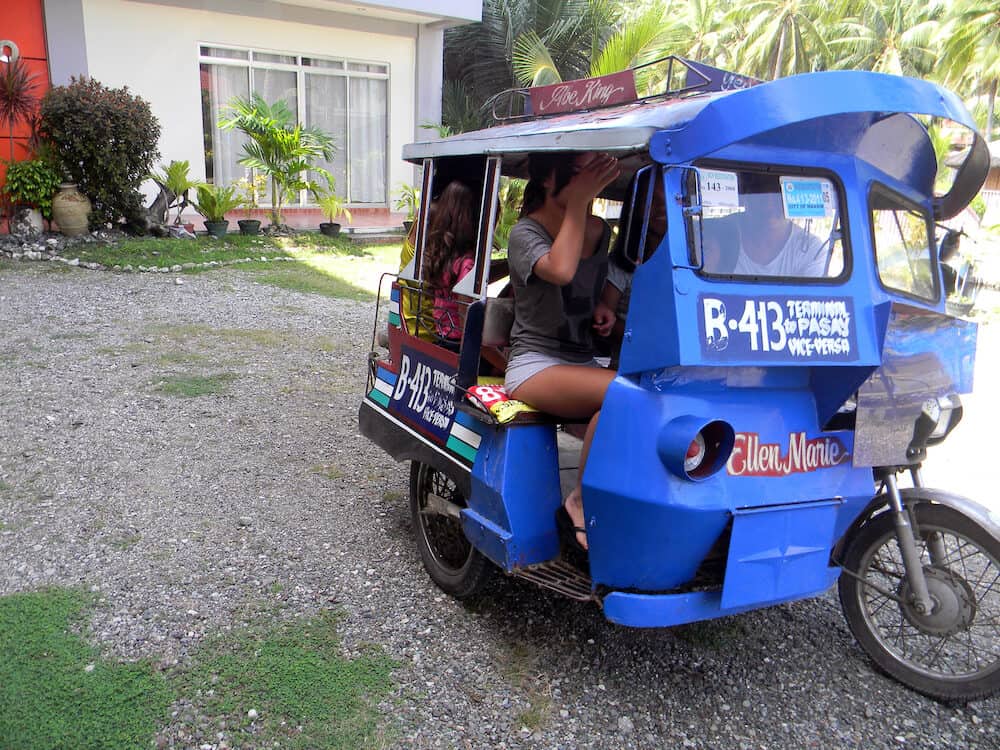
The best time to visit Cebu
The Christmas and New Year period is considered the high season, so hotels will book up quickly. Cebu is also bustling during and leading up to the annual Sinulog Festival, held on the third Sunday in January.
If you want to join in on the cultural and religious festivities, be sure to book your holiday in advance.
If you’re planning on spending a lot of time at the beach, however, you should visit Cebu between March and May when the weather is warm and the winds are calmer.
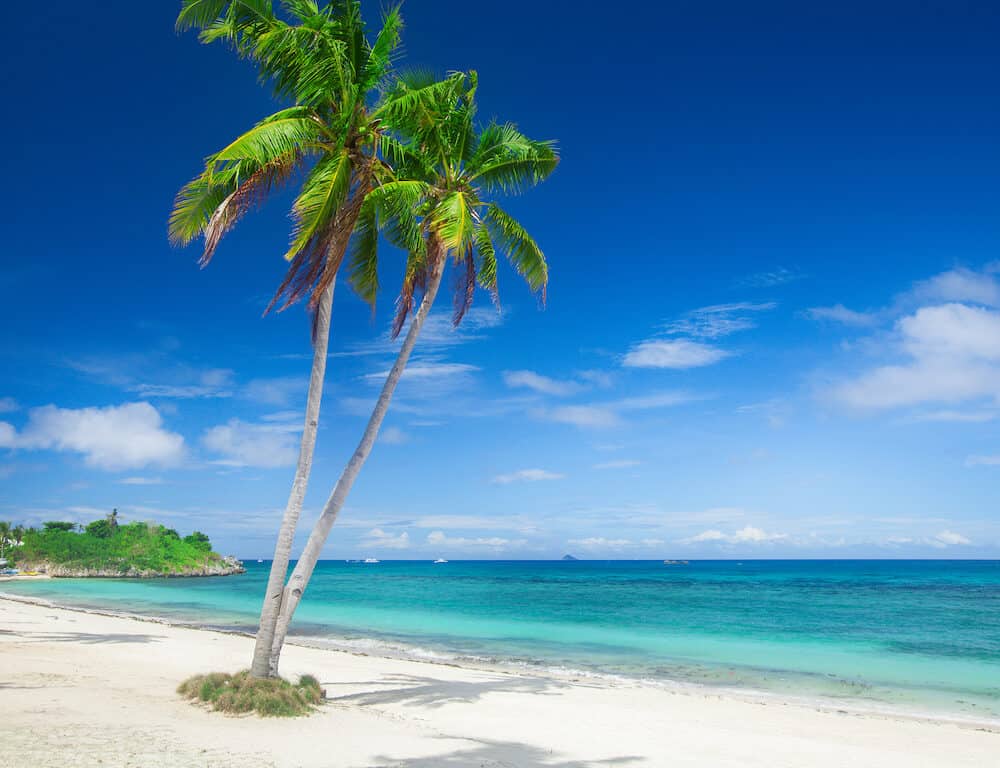
Things to do in Cebu
Learn about Cebu’s history
Cebu has played a significant part in the history and growth of the Philippines, so why not take the opportunity to learn more about it?
Constructed by Chinese merchants in the 17th-century, the Yap-Sandiego Ancestral House is a must-visit to learn about Cebu’s interesting past. This historic residence includes handcrafted furniture and works of art from a bygone era. Entrance costs 50 pesos and includes a guided tour.
There’s also 1730 Jesuit House, aka the Jesuit House Museum, an impressive snapshot of 18th-century culture and architecture. Hidden away from the street behind high concrete walls, it is remarkably well preserved. Take a trip through time while learning from enthusiastic and informative guides.
Go shopping
Once you’ve visited all of the main attractions and are looking for more things to do in Cebu City, it’s time to go shopping.
There are some fantastic shopping malls in the central business district, including Ayala Centre, SM City and Robinsons Galleria. These popular shopping centres have a range of Western and Filipino stores, and are also great places to escape the heat for a few hours!
Public outdoor markets, on the other hand, are always lively and bustling. Carbon Market is the oldest and largest open-air market in Cebu City and offers a range of local produce for you to try. Taboan Public Market is another popular food market to visit and is famous for its variety of dried fish.
For souvenir shopping, Island Souvenirs has some of the highest quality goods available at a few locations around Cebu. You can pick up some colourfully designed T-shirts and tote bags so that you’ll always be reminded of your trip.
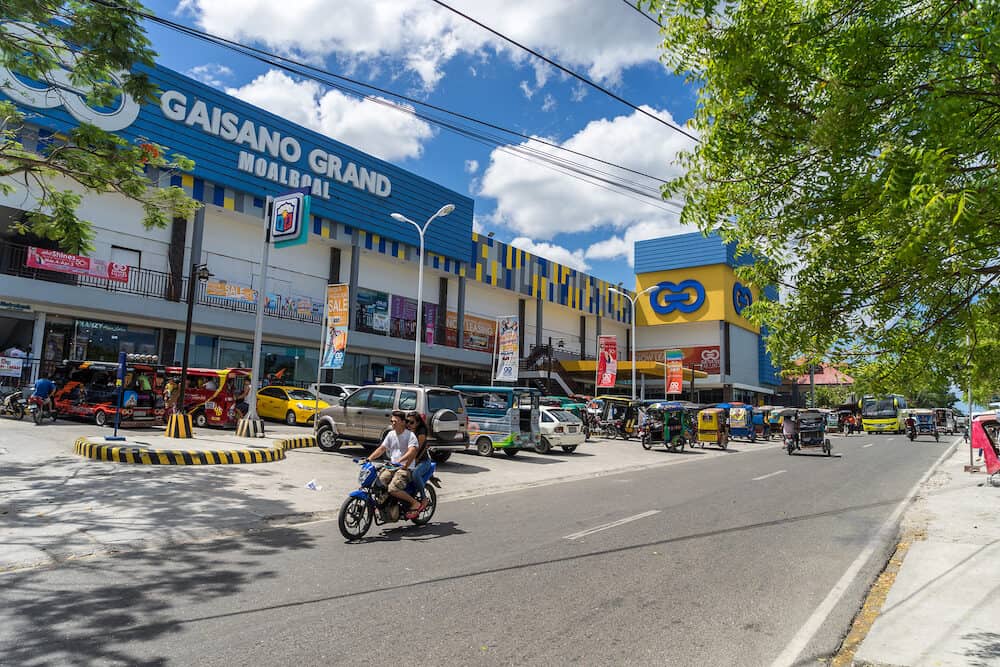
Places to visit in Cebu
There are a wide variety of things to see and places to visit in Cebu. Here are a few of the best spots we’d recommend checking out during your holiday.
Cebu Taoist Temple
Although this Taoist temple was built by Cebu’s Chinese community and is used as a centre of worship, it is open to everyone who wishes to visit. The colourful, multi-tiered complex sits 110 metres above sea level, offering beautiful views of downtown Cebu.
The temple’s entrance is a much smaller replica of the Great Wall of China. It’s an interesting spot to visit regardless of your faith, with a dragon statue in the front garden, a wishing well, and a souvenir shop.
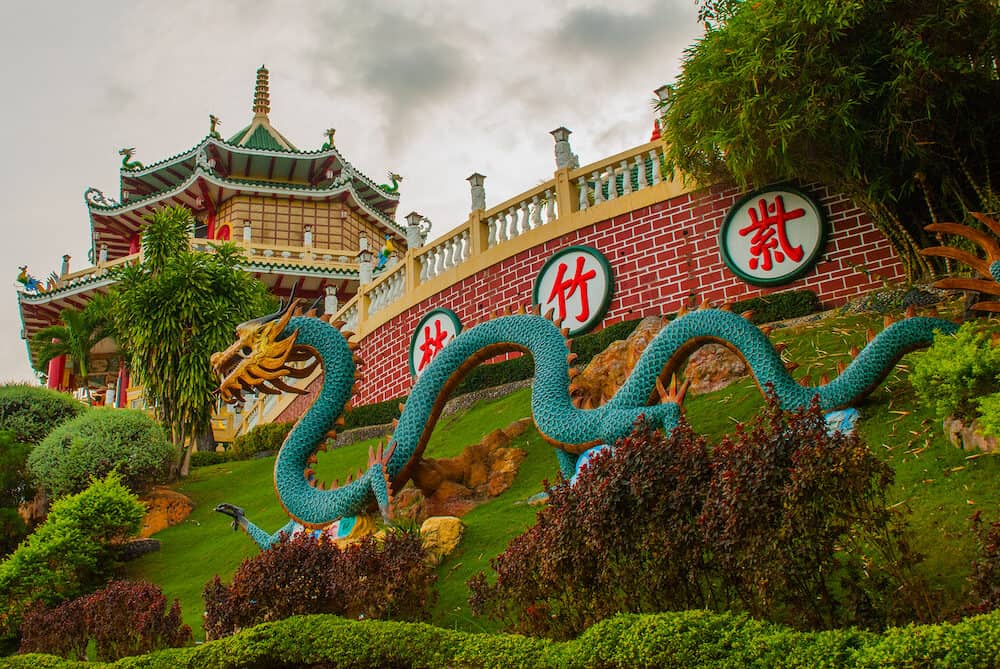
Temple of Leah
On first glance, you might assume that this Roman-style complex has been around for centuries, yet construction only began in 2012. The Temple of Leah is unlike anything you’ll see in this part of the world.
The seven-storey-high temple features a main courtyard with granite flooring, Grecian statues, golden lions and a marble fountain.
It also houses antique collections and books in many of the 24 chambers. With breathtaking views from atop the elevated Barangay Busay, this attraction is easily one of the most scenic spots in Cebu.
Basilica del Santo Niño
The Basilica Minore del Santo Niño de Cebu is a minor 16th-century basilica on Osmeña Boulevard. The present-day building contains a museum and a library, and the ceilings are lined with frescoes.
It’s also the oldest Roman Catholic church in the Philippines and was declared a National Historical Landmark in 1941.
Although a lot of damage occurred during the 2013 Bohol earthquake, the basilica has been reconstructed and retains its charm.
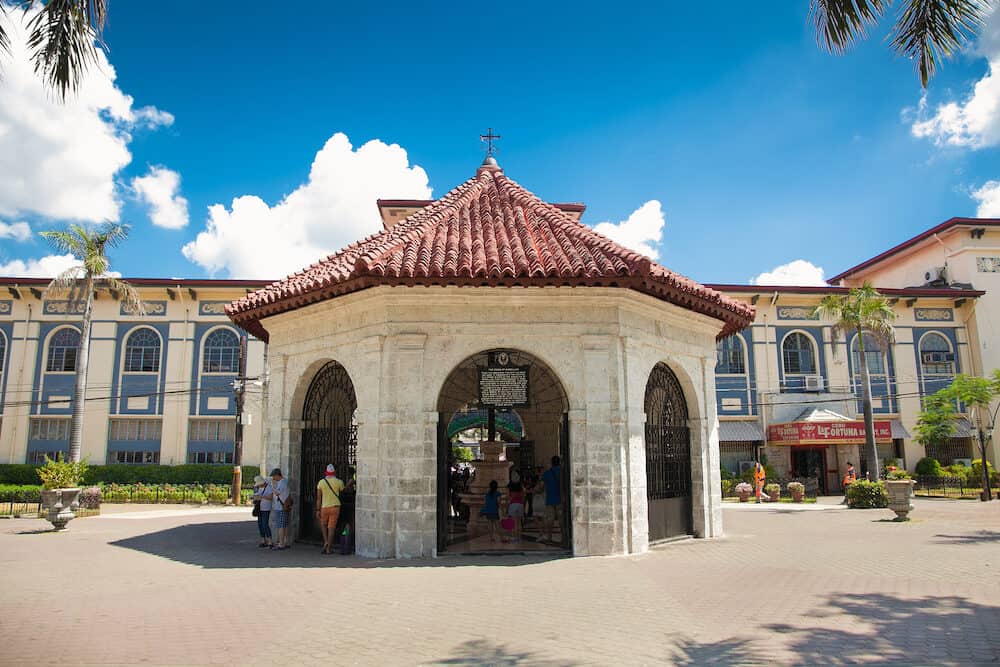
Fort San Pedro
Fuerte de San Pedro, opposite the Plaza Indepedencia, dates back to 1565. With two sides of the triangular fortress facing the sea, it was used to defend against raiders and pirates.
The small stone structure is now considered a historical park and houses paintings, photographs and artefacts.
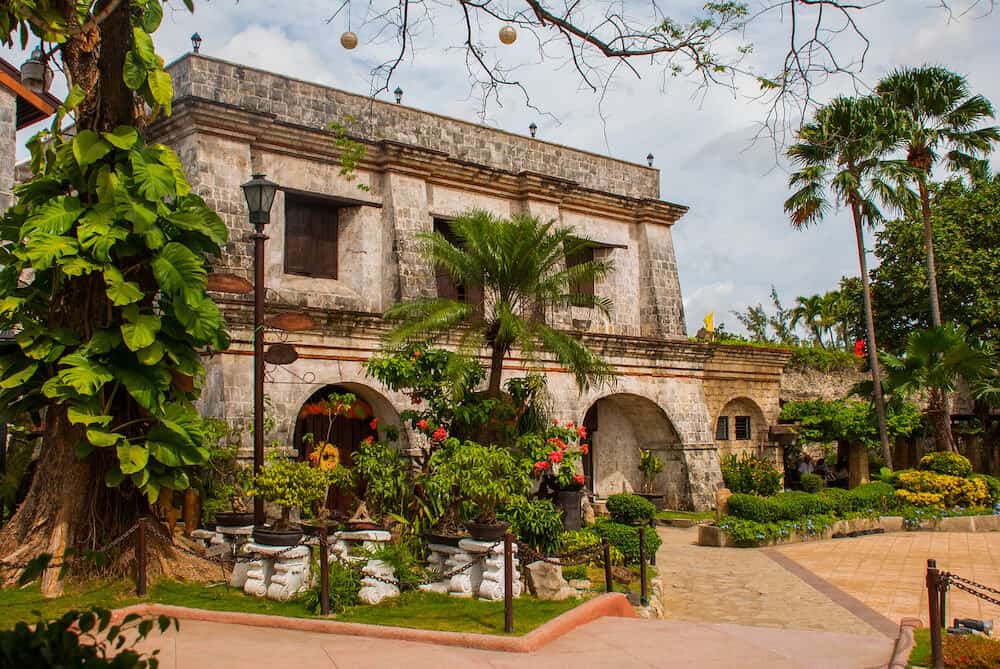
Cebu Metropolitan Cathedral
This cathedral is a stunning attraction in the Santo Niño area and is one of the oldest churches in Cebu.
The Baroque-Rococo design makes it one of the most extravagant buildings in Cebu, and the remarkable beauty only continues inside.
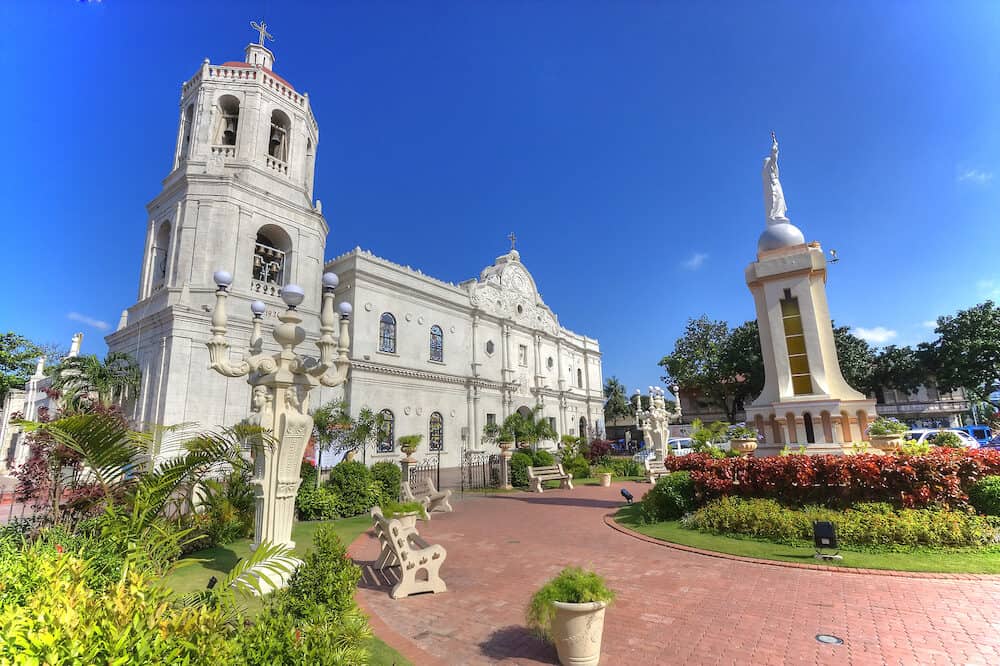
What to eat in Cebu
If you’re an ardent meat eater, it won’t take long for you to fall in love with Filipino cuisine. The style of cooking and range of dishes come from over a hundred distinctive ethnic groups throughout the Philippines, with notable influence from Austronesian neighbours throughout the centuries.
Look out for a few of these famous local foods while in Cebu:
- Bulalo: A beef shank soup made with a clear broth and served with whole corn cobs and bok choy
- Ngo hiang: A battered and deep fried rice paper roll filled with bamboo shoots and ground pork
- Mango pizza: A self-explanatory and surprisingly popular dish across the Philippines, with sliced green capsicum/bell peppers to contrast the sweetness
- Puto maya and sikwate: A must-have breakfast of steamed sticky rice cake and fresh mangoes, and always served with a cup of hot chocolate
- Halo-halo: A dessert of crushed ice and evaporated milk, mixed with tapioca, banana, coconut, sweetened beans, pudding, and whatever else you’d like

Where to stay in Cebu
You’ll discover so many options while you’re figuring out best place to stay in Cebu, whether you’re looking for a five-star hotel in the centre of the city or a spa retreat in the middle of the jungle or Airbnbs.
Sugbutel Family Hotel is a budget-friendly option for those who want to stay within the city and near many of the best Cebu attractions, it’s one of the best resort in Cebu.
This no-frills hotel also has dorm rooms if you’re travelling with a group of friends or want to save some money for more activities. It’s minutes away from the SM City mall and the Pier 5 ferry port.
If you prefer to be closer to nature, you can stay in a rustic yet air-conditioned cottage at Mayas Native Garden.
Found in the beautiful area of Moalboal, it’s at the foot of Panagsama Beach and less than 30 kilometres north of Kawasan Falls. This peaceful and cosy inn is the ideal place to stay for a humble and relaxing retreat in Cebu.
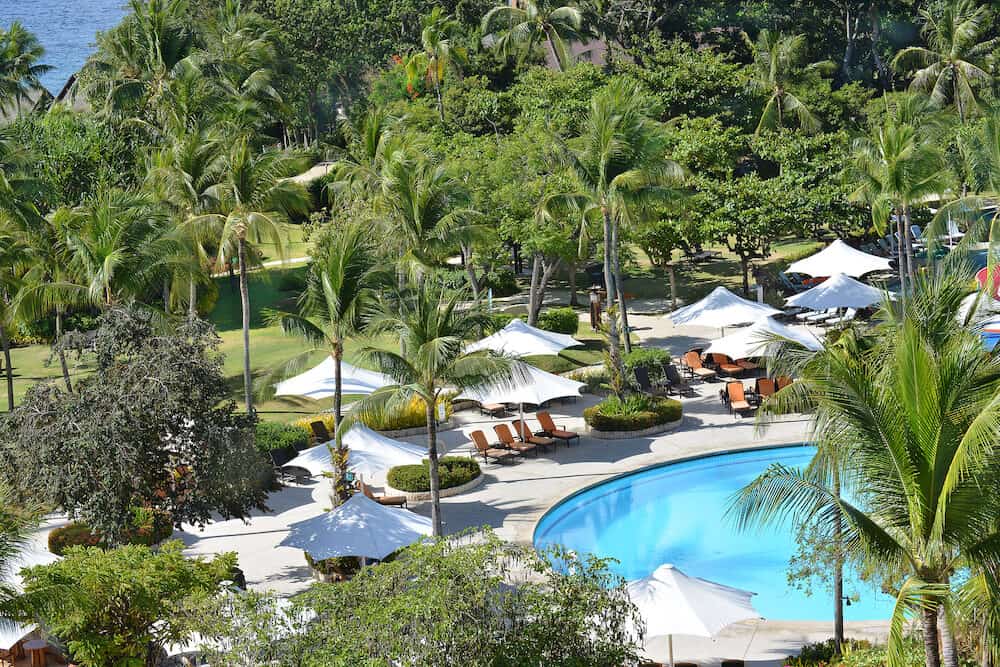
Tours to do in Cebu
A trip to one of the top Cebu tourist spots, Kawasan Falls is an absolute must. This gorgeously picturesque location is a group of waterfalls and vibrant blue lagoons within the heart of the jungle.
If you’re up for a bit of adventure, there are numerous canyoneering tours to do whilst there. A private guide and driver can prepare you with all of the necessary equipment and show you how to safely climb, rappel and cliff jump through the Kawasan Falls.
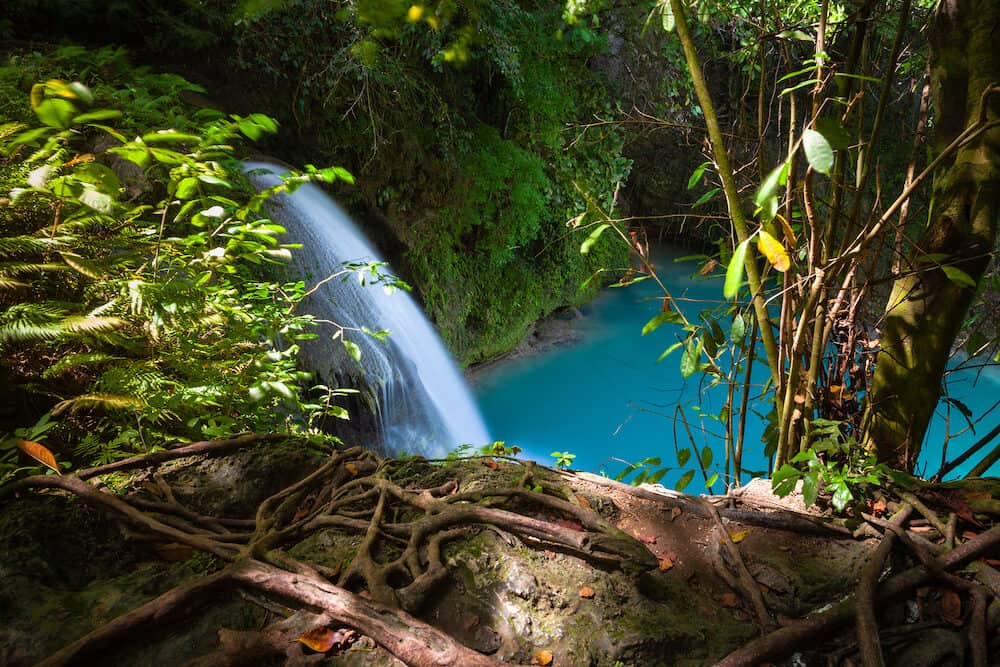
You might also enjoy a tour of Oslob, one of Cebu’s smaller provinces, to look for whale sharks. There are a few joint packages on offer if you want to combine this experience with a trip to Kawasan and Tumalog Falls.
If you choose to get out of the boat and swim alongside the sharks, remember to respect their space and avoid grabbing them. Simply witnessing the beauty of these magnificent creatures will create a lasting memory.
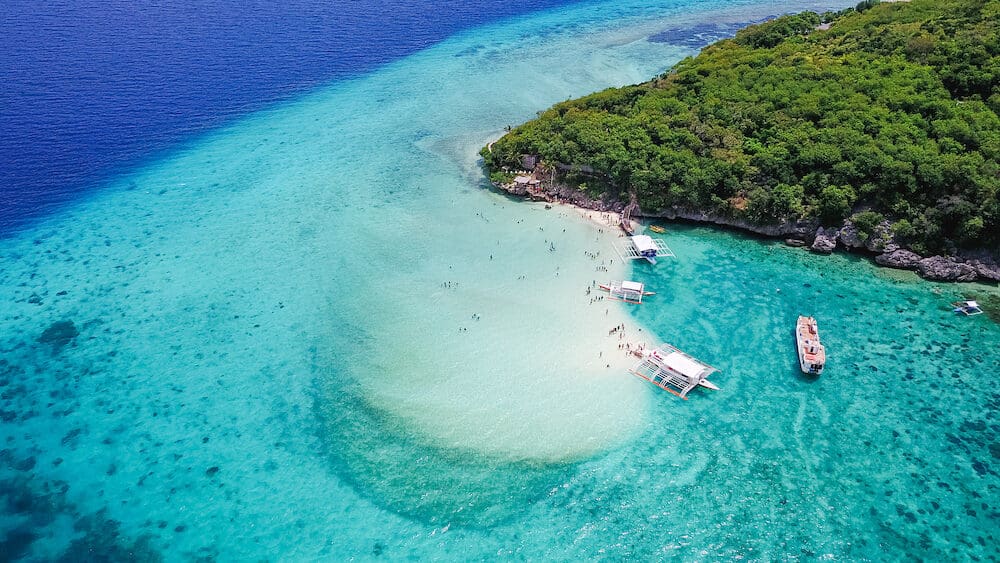
Day trips from Cebu
One of the most popular day tours out of Cebu is a trip to the island of Bohol. There are a few superb tours on offer, typically lasting from nine to 12 hours. This adventure will take you to the Chocolate Hills, one of the most iconic natural wonders in the Philippines.
Another highlight of Bohol is a cruise along the Loboc River, followed by lunch at a floating restaurant. The cost of these day trips cover the admission fees into a variety of attractions, depending on the tour you decide on.
The places you can visit may include the Baclayon Church, the Mahogany Forest, the Philippine Tarsier and Wildlife Sanctuary, and the Bohol Python and Wildlife Park.
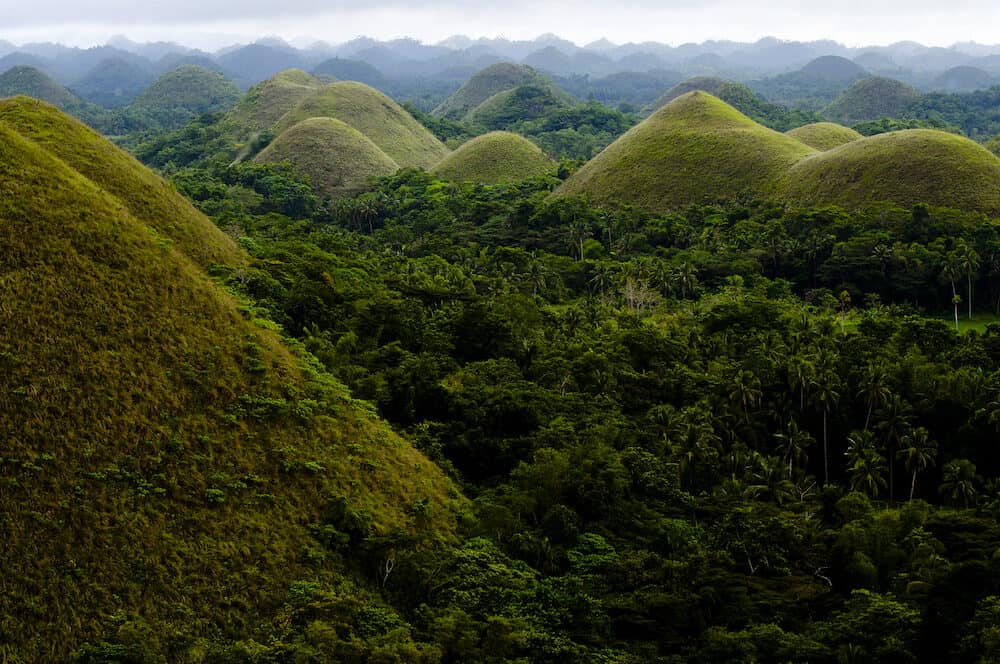
If you’re low on time, you can choose to take an evening trip to Bohol instead. This magical, four-hour night excursion features a delicious gourmet dinner and a private firefly-watching cruise along the mangrove forests of the Abatan River. It’s certainly a beautiful and illuminating experience that won’t be forgotten.
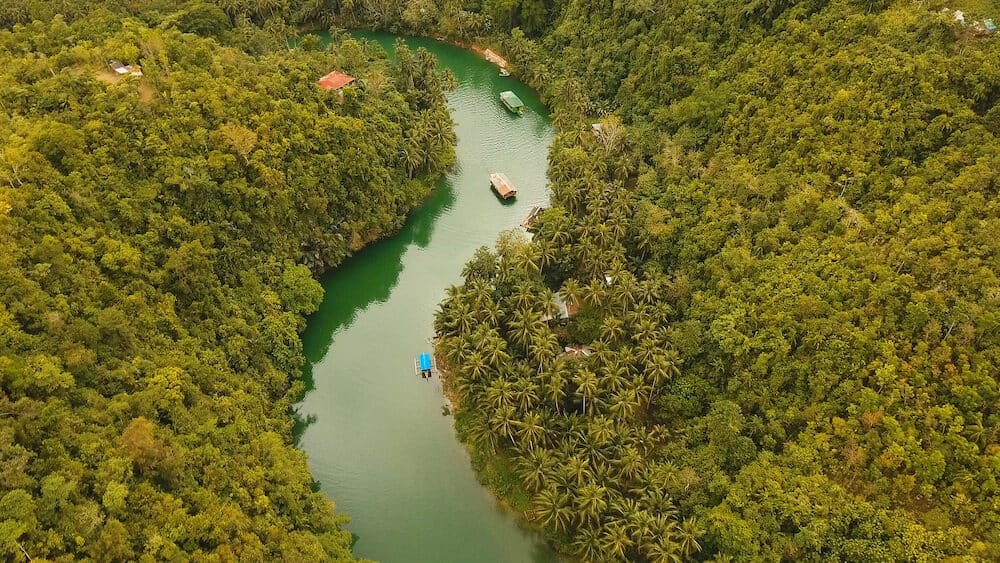
If you wish to see more than Bohol, a day of island hopping is perfect for you. Hop on a motorised banca boat and take a guided cruise around the Mactan Channel, including the Hilutungan and Nalusuan islands.
You’ll be shown all the top snorkelling and swimming spots, and get to know the aquatic life at the Nalusuan Marine Sanctuary.

Recommend budget tours in Cebu
- Private Bohol Evening Firefly Watching Cruise
- Kawasan Falls and Mantayupan Falls in One Day from Cebu
- Full Day Whale Shark Experience with Kawasan Falls from Cebu
- Private Day Trip from Cebu to Bohol with Chocolate Hills & Loboc River Cruise
- Whale shark Encounter in Oslob – Shared Tour
- Private Full-Day Cebu and Lapu-Lapu Cultural Tour
- 3-Hour Small Group Cebu City Tour
- Cebu Island Hopping Tour
- Cebu Seawalker Adventure
- 9-Days in Philippines: Cebu-Bohol-Palawan-El Nido
- 3 Days and 2 Nights in Cebu
- Private Cebu Day Tour: Oslob Whaleshark, Canyoneering , Kawasan Falls
- Oslob Whale Shark and Kawasan Falls Canyoneering Day Tour
Get your guide is a Great company, that often offers heavily discounted tours! Check out a few options below:
If you’d like to save it for later, please save it to Pinterest.
